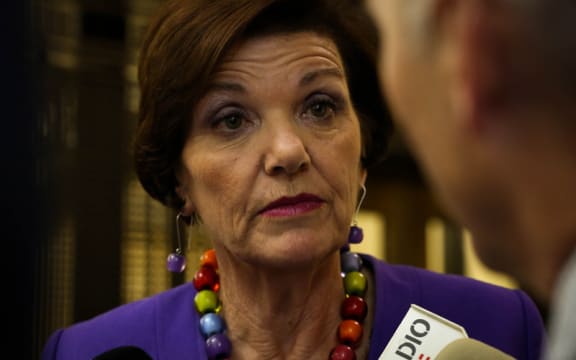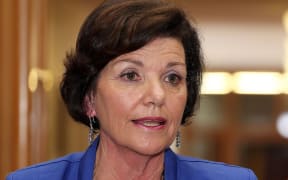The Government is proposing the country's first child sex offender register.

National MP, Anne Tolley. Photo: RNZ / Alexander Robertson
The Child Protection (Child Sex Offender Register) Bill, which would allow police and the Corrections Department to establish a register for convicted child sex offenders aged 18 and over, has been introduced to Parliament today.
Social Development Minister Anne Tolley said the legislation was part of a programme of work which aimed to keep young people safe from harm.
The register would include offenders who had been:
- convicted of a qualifying offence and sentenced to prison
- convicted of a qualifying offence, sentenced to a non-custodial sentence and directed to be registered by the sentencing judge
- convicted of an equivalent offence and sentenced overseas, or put on an overseas register, if they intend to reside in New Zealand.
It would provide information to a dedicated unit of police and corrections staff, which would identify and manage the risk posed by convicted child sex offenders who had come to the end of their sentence, or were serving non-custodial sentences.
Based on the scale of offending, offenders would stay on the register for a term of life, 15 years or eight years.
"At the moment, offenders can disappear back into communities when they finish a sentence or order," Mrs Tolley said.
The bill would also establish offences for failing to report or provide the required information with penalties of a fine of up to $2000 or one year in prison, or both.
The register would not be open to the public but in some cases information could be released to a third party, such as the parent or guardian of a child or a teacher.
Child sex offenders would need to provide a range of information to authorities every 12 months, including their fingerprints and address.
"It's not going to be public. It would be available to both police and corrections as they look to manage these offenders and then we will be negotiating for people like MSD and maybe health, where there's mental health issues," Mrs Tolley said.
She said she accepted a register breached an offenders' rights to privacy but said a balance needed to be struck.
"I have no doubt it will be tested at the select committee.
"It's not unreasonable to keep a register of where people are. That's all. No one else is interfering in their lives. They can go and live their lives but we are asking that they register every 12 months and keep those details up to date."
The register is scheduled to be in place by July 2016.


